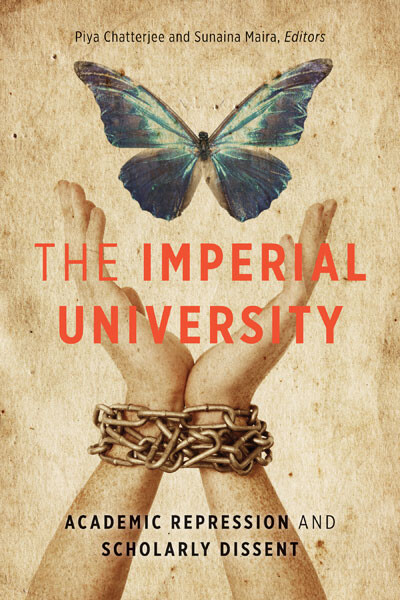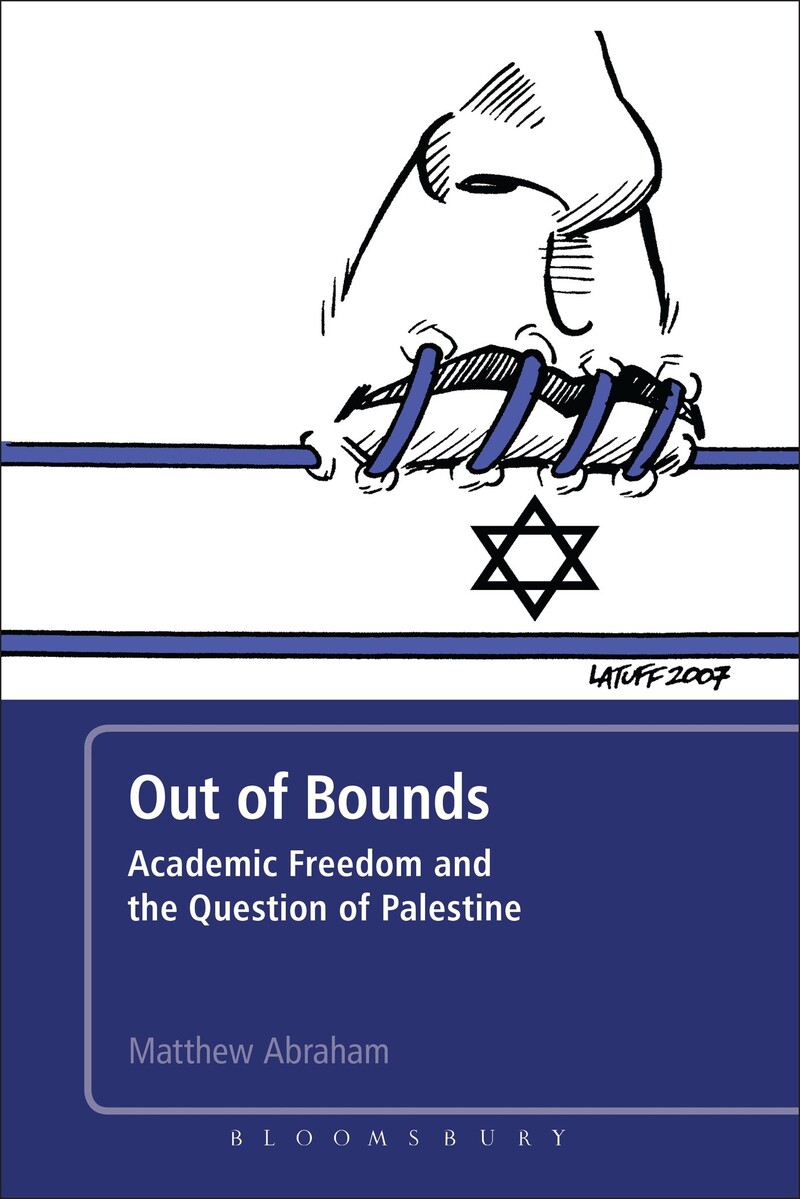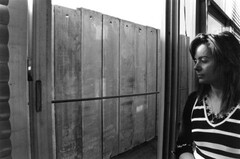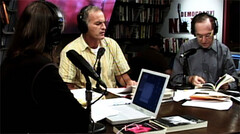The Electronic Intifada 19 December 2014

Freedom of expression is supposed to be cherished in universities. Yet it is under threat in the United States — as was illustrated when Steven Salaita was fired from a tenured position at the University of Illinois at Urbana-Champaign over tweets excoriating Israel’s summertime attack on Gaza.
Two new books provide important insights into such violations of basic liberties: Piya Chatterjee and Suniana Maira’s edited collection The Imperial University: Academic Repression and Scholarly Dissent (University of Minnesota Press) and Matthew Abraham’s Out of Bounds: Academic Freedom and the Question of Palestine (Bloomsbury).
Although Chatterjee and Maira’s volume is not about Palestine per se, Palestine features prominently in it. Indeed, the book is partly dedicated to the Irvine 11: a group of students in California who disrupted an Israeli ambassador’s speech in 2009, a year that began with a murderous assault on Gaza.
The book draws connections between struggles against various forms of injustice.
Its fourteen chapters cover issues of race, sexuality, gender, class, religion and nation as well as militarism, neoliberalism and imperialism — and how these issues interact with each other.
In their introduction, Chatterjee and Maira emphasize that academics in the US play an important role in legitimizing American aggression, whether wittingly or not. The exceptions are those who question the prevailing assumptions.
Ivory tower myth
Each of the contributors to The Imperial University demystifies any notion readers may have about a mythical ivory tower.
University administrations tend to use the word “civility” to describe those who don’t fall in line.
Blacklisting faculty based on codes of “civility” is not new. This same rhetoric was used at the height of Cold War repression, when the standard expulsion criterion for academics was whether a professor exhibited “appropriate behavior.”
Norman Finkelstein was denied tenure at DePaul University because he “represented a threat to ‘civil discourse’ and ‘serious intellectual inquiry that the academy stands for,’” Abraham’s book notes.
The aforementioned Steven Salaita wrote one of the essays in The Imperial University. It deals with experiences that predate his recent sacking.
While applying for tenure at Virginia Tech, a committee assessing Salaita’s bid decided that he was a specialist in “political literary analysis.” Salaita wonders why the label “political” is reserved for scholars who challenge the status quo. It has not been applied to academics with strong connections to the powerful — such as Bernard Lewis and Fouad Ajami, both of whom advised George W. Bush to invade Iraq.
Matthew Abraham’s book Out of Bounds examines the limit of academic freedom through the experience of a number of professors and activists who have written and spoken out about Palestine: Norman Finkelstein, Edward Said, Noam Chomsky, Rachel Corrie and Fouzi El-Asmar.
Preferential treatment
Whereas the other characters in this eclectic mix only get one chapter devoted to each of them, Finkelstein gets two. This preferential treatment may be explained by how Abraham used to teach at DePaul. Nonetheless, the end result is that too much attention is paid to Finkelstein’s case and that ideas and arguments are repeated unnecessarily.

Yet it does raise an important point. Alan Dershowitz, the legal scholar who led the efforts to vilify Finkelstein, succeeded in preventing Finkelstein from gaining tenure by diversionary tactics. Thanks to Dershowitz, the focus was no longer on the subject of Finkelstein’s work (Palestine) but on such questions as tone and — that word, again — “civility.”
The irony here, Abraham writes, is that “Finkelstein was constructed as an enemy of academic freedom instead of someone who was denied basic academic freedom protections.”
Not all of the scholars whose work is analyzed in this book have suffered in the same way.
The late Edward Said certainly faced significant hurdles in giving voice to Palestinians but he was also able to write for the mass media. Chomsky was something of a persona non grata for the mainstream press in the 1980s and 1990s. But his criticisms of US foreign and domestic policy have reached a wider audience since the 11 September 2001 attacks.
Incongruous
The chapter on Rachel Corrie is perhaps incongruous. Unlike the others featured in this book, she was not an academic but an activist, killed by an Israeli soldier driving a Caterpillar bulldozer as she tried to halt the demolition of a home in Gaza.
Although Corrie left behind a body of posthumously published writing, Abraham doesn’t engage with her written work. Instead, he returns to the subject of controversy in academia over how a writing award has been named in her honor.
The Rachel Corrie Courage in the Teaching of Writing Award is designed to reward those willing to take risks in their scholarship. This prize, organized by a group within the Illinois-based Conference on College Composition and Communication, unleashed a firestorm among members of the conference, revealing that some were biased towards Israel.
At times, Abraham’s book feels more like a dissertation that wasn’t revised sufficiently; this means it will not prove accessible to non-academic readers.
With that and a few other qualifications, I’d nonetheless recommend both of these titles to Palestine solidarity activists. If we are to overcome repression on campus, we have to study it first.
Marcy Newman is a writer, teacher and activist and a founding member of the US Campaign for the Academic and Cultural Boycott of Israel. She is the author of The Politics of Teaching Palestine to Americans: Addressing Pedagogical Strategies.






Comments
The myth of the liberal academy and other assorted fairy tales
Permalink Zionism Is Not Judaism replied on
Intellectual suppression in the Academy is not a new thing to the USA. The experiences, a century ago, of Charles A Beard for writing "An Economic Interpretation of the Constitution of the United States" (which merely suggested, among other things, that Alexander Hamilton was yet another slimy bond salesman) should show us that.
Isma'il al Faruqi
Permalink Matthew Graber replied on
I'm surprised and kind of disappointed that the discussion around the case of Steven Salaita and the suppression of Palestinian discourse in academia hasn't brought up the case of Isma'il al-Faruqi, the Palestinian scholar of Islamic Studies who, while teaching at Temple University in Philadelphia in 1986, was murdered: http://www.ismailfaruqi.com/bi.... I've thought of writing something about this myself, but I myself am not very well acquainted with Professor Al Faruqi.
dr, al Faruqui
Permalink prof. sam hamod replied on
Sadly, my friend Dr. al Faruqui and his wife were both murdered by a salafist who felt he was no "muslim enough"; a precursor to the jihadis and isis of today.
sincerely,
Prof Sam Hamod,Ph.D (Princeton University, retired)
I think we have seen that it
Permalink maggie replied on
I think we have seen that it is donors who rule, not ethics, not academic freedom, not righteousness. Donors. Donors with sufficient influence can cause academic institutions to fire people. We have seen them do it.
In France Too
Permalink George Kazolias replied on
Professor Shlomo Sand was recently banned from speaking at the Nice Inter-Age University under threats from zionists. No politician spoke up against the attack on freedom of expression. You can be sure if Islamists threatened a zionist speaker, parliament would have been in an uproar. In France, speaking against zionism is equated with incitation to racial hatred and those calling for a boycott can find themselves in court.
This speech will not solve
Permalink Jorge replied on
This speech will not solve the serious problem in Palestine. Only sell more books .